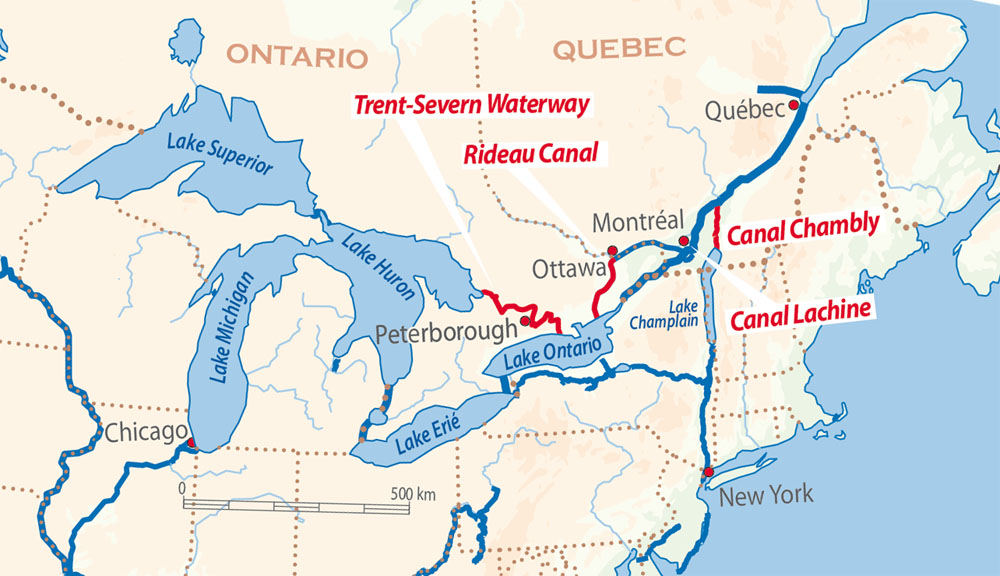The saga of the Canadian Heritage canals managed by Parks Canada grinds on. In the early New Year Parks Canada introduced a new fee schedule for using the locks on its three major historic canals; the Rideau, The Trent Severn Waterway and the Quebec Canals.
Not only was Parks Canada proposing a whole new way of charging for the service offered, but also increasing these fees substantially. So for a boater, the cost to use the locks and moor increased well beyond any form of a reasonable increase. This was fuelled by the earlier changes to the navigation season service offer (see earlier posts). That exercise left many boaters, business people, communities, tour and rental boat companies and users very angry. The Government did keep its promise not to reduce the length of the season (see overly optimistic announcement posted here October 23, 2012) however, the devil was in the details, and as it turned out they reduced very substantially the hours of service within the season, the amount or degree of service in the shoulder seasons and reduced operating staff substantially.
So, then in the New Year out came a new fee schedule and format, which caused a firestorm of reaction along the canal corridors. It was so intense that within a couple of days Parks Canada started to make changes most likely in response to the number and intensity of comments they were hearing from the public. Since that time and well before the final date for comments, they have made further changes to their proposals in trying to deal with the shortcomings of the original plan. However, even with these changes the fee rate is increasing substantially. Most users were willing to see rates increase, but something within reason and based on some type of a business case which has not been forthcoming after many requests.
What is sad is the impact it has had on Parks Canada’s credibility as an organization that knew how to operate canals and understood their importance from a cultural, natural or economic perspective. However, the accumulative impact of the changes for lockage fees plus the reduction of service level will without a doubt diminish the use and opportunities which in turn puts more pressure on the increased revenues versus costs ratio that the government seems to be demanding of Parks Canada. It misses the point and doesn’t take into account that these heritage waterways are economic drivers for their communities and they contribute substantially to the GDP of the country. As an example; the Parks Canada Economic Impact Study of the Rideau Canal 2010/2011 determined that the $10.5 million spent on the Rideau, generated $44.4 million to the GDP and supported 641 full time equivalent jobs, and this was only visits to lock stations. It didn’t include the people who visit resorts, restaurants, stores, marinas, museums, etc. that are prevalent up and down the corridor.
So, there are still many unanswered questions. What will the final fee schedule be for the coming navigation season? What will the fall out be on visitation and use of the canal at a time when the government is pushing for economic initiatives to keep the economy healthy? What will the cultural and natural heritage impacts be for these canals after major changes in how they are organized when the number of specialists in these fields has been greatly reduced and are not necessarily on site? Will the water management function have the capability, knowledge and experience to meet the demand and intricacies of the operation and not seriously jeopardize public safety and is it sustainable? Will all of these changes work over the long haul or will public safety, the heritage values and canal use be in jeopardy? Sadly only time will tell and by then it may be too late!!
David Ballinger

